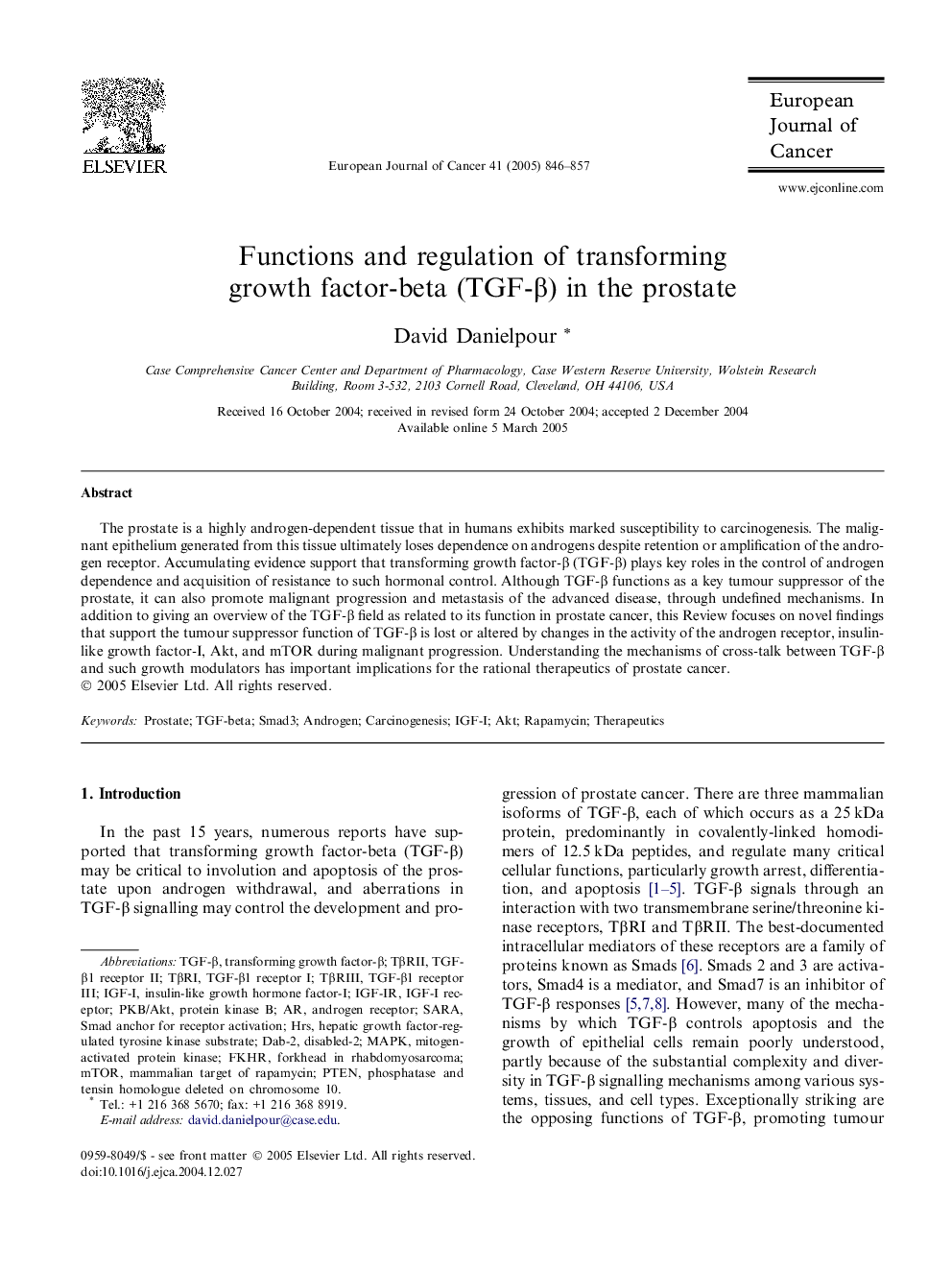| Article ID | Journal | Published Year | Pages | File Type |
|---|---|---|---|---|
| 9905823 | European Journal of Cancer | 2005 | 12 Pages |
Abstract
The prostate is a highly androgen-dependent tissue that in humans exhibits marked susceptibility to carcinogenesis. The malignant epithelium generated from this tissue ultimately loses dependence on androgens despite retention or amplification of the androgen receptor. Accumulating evidence support that transforming growth factor-β (TGF-β) plays key roles in the control of androgen dependence and acquisition of resistance to such hormonal control. Although TGF-β functions as a key tumour suppressor of the prostate, it can also promote malignant progression and metastasis of the advanced disease, through undefined mechanisms. In addition to giving an overview of the TGF-β field as related to its function in prostate cancer, this Review focuses on novel findings that support the tumour suppressor function of TGF-β is lost or altered by changes in the activity of the androgen receptor, insulin-like growth factor-I, Akt, and mTOR during malignant progression. Understanding the mechanisms of cross-talk between TGF-β and such growth modulators has important implications for the rational therapeutics of prostate cancer.
Keywords
TGF-βFKHRTβRImTORIGF-IRHRSIGF-ITβRIISmad3MAPKPKB/AKTTGF-betaAndrogenAkttransforming growth factor-βTherapeuticsRapamycinSARACarcinogenesisphosphatase and tensin homologue deleted on chromosome 10smad anchor for receptor activationDisabled-2mammalian target of rapamycinprotein kinase Bmitogen-activated protein kinaseProstatePtenIGF-I receptorAndrogen Receptor
Related Topics
Life Sciences
Biochemistry, Genetics and Molecular Biology
Cancer Research
Authors
David Danielpour,
